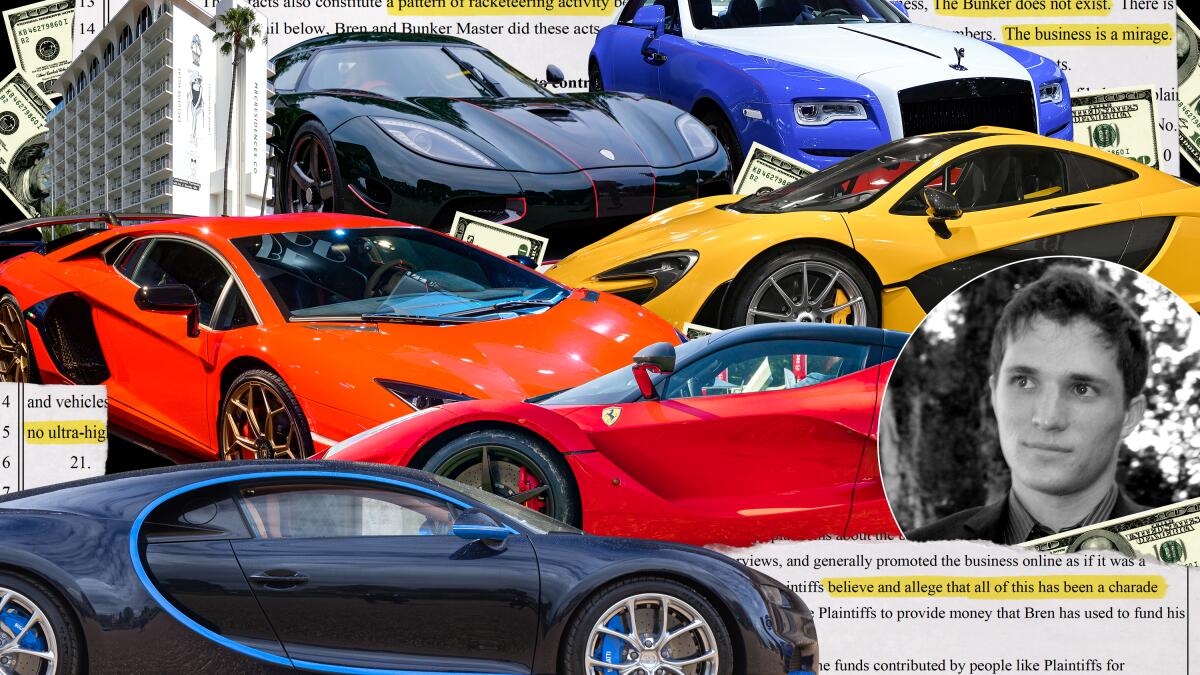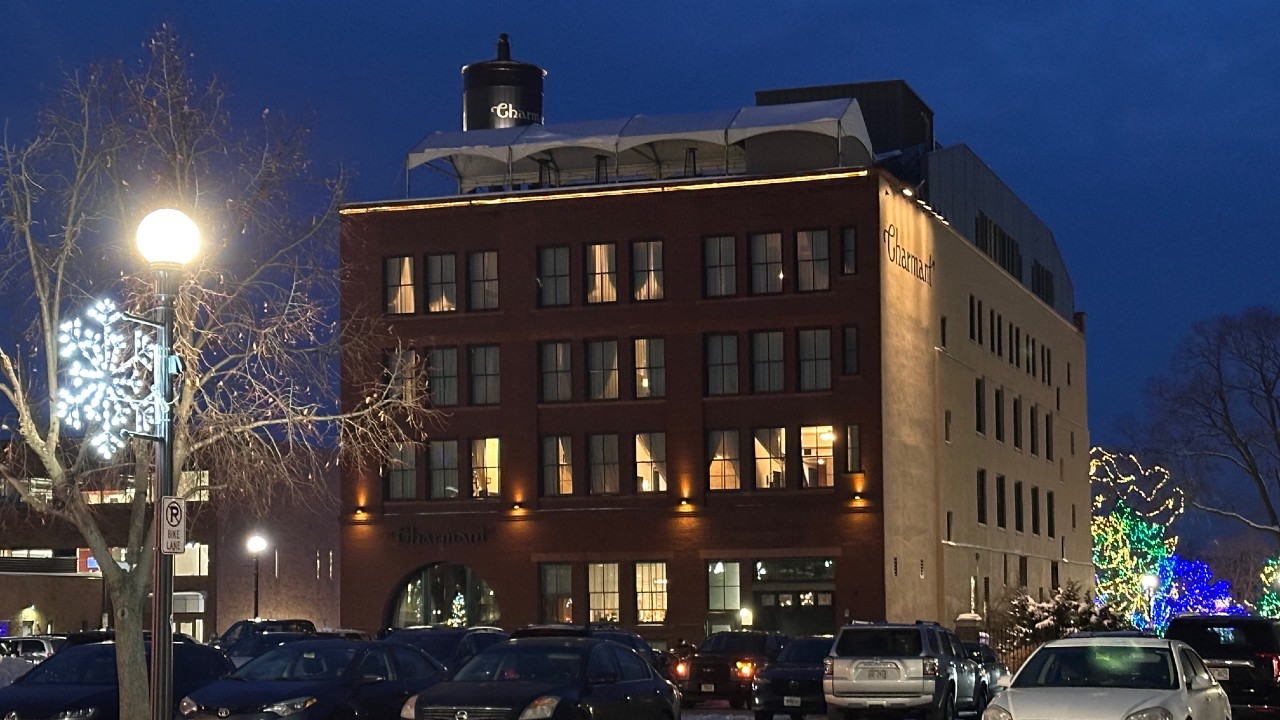T
he Bunker was pitched as a high‑end “man cave” for Southern California’s elite, promising a monthly fee of $14,500 that would grant members access to a fleet of Ferraris, Bugattis and Porsches, along with curated dining, premium wines, cigars and private lounges. Investor decks released to the Los Angeles Times listed supposed founding members such as Mark Cuban, August Getty, Kristaps Porzingis and Larry Ellison. The venture also claimed that its owners were in the process of acquiring Mr. C’s Beverly Hills Hotel for roughly $90 million, with the hotel slated to house the club’s supercar collection.
David Bren, the 33‑year‑old son of billionaire developer Donald Bren, was the face of the project. He marketed The Bunker as the ultimate luxury club, using his family name to attract investors. Between 2020 and 2022, Bren held meetings in upscale West Los Angeles venues and attended Formula 1 events worldwide, presenting a vision of a club that would rival the exclusivity of SoHo House but for car enthusiasts. He promised a fleet valued at more than $50 million and a “supercollider for brilliance and passion,” according to slides in the deck.
However, a series of lawsuits filed by former investors allege that The Bunker never existed. Plaintiffs claim the club was a “charade designed to lure investors” and that Bren siphoned funds into a lavish personal lifestyle. One suit states, “The Bunker does not exist. There is no ultra‑high‑end automotive club. There are no members. The business is a mirage.” Courts have found Bren liable for roughly $2.6 million in judgments, and he has not retained counsel for the cases. He has also been accused of defaulting on leases for high‑end cars, homes and office space, including an alleged break‑in at a Beverly Hills residence.
Investors such as Nanxi Liu, who contributed $100,000 in 2021, were drawn in by Bren’s references to celebrities and a purported contract to purchase the Beverly Hills Hotel. Liu was taken to a West Hollywood event that Bren claimed was co‑sponsored by Louis Vuitton, but no branding appeared. She later learned that the hotel deal never materialized; the property was rebranded as the Cameo Beverly Hills and is now operated by Hilton. Liu has sued Bren for the money she invested, winning a default judgment after he failed to honor a $500,000 check that bounced.
Another investor, Tony Chen, a tech entrepreneur who had backed Liu’s first company, was persuaded to invest up to $1 million in The Bunker. Chen’s involvement led him to contact former prosecutor Joshua Ritter, who in turn connected him with an FBI agent. The FBI investigation, however, yielded no action. Chen’s wife and he separated in late 2022, and Chen died by suicide in September 2022. His death was attributed to a combination of marital strain, mental health issues and financial pressure, all exacerbated by the collapse of The Bunker.
The Bunker’s supposed partnership with the W Series, an all‑female racing circuit, further illustrates the project’s failure. Bren signed contracts to sponsor two teams and place Bunker‑branded cars in the series, but never paid the required deposit. The W Series filed for bankruptcy in 2023, citing Bren’s non‑payment as a significant cash‑flow problem.
Donald Bren, the 93‑year‑old founder of the Irvine Company, has publicly denied any personal or business relationship with his son. A spokesperson for the elder Bren stated, “We do not have a personal or business relationship with this individual.” Despite this, David Bren’s use of the Bren name and his father’s real‑estate connections were central to his pitch. Investors were told that the Irvine Company’s board, which Donald Bren had served on for decades, would support the hotel acquisition. In reality, the deal fell through, and the hotel was sold to Hilton.
The legal fallout has been extensive. In 2022, Elham Alsulaiman and Zainal Alireza offered Bren $1 million in seed money for a second franchise in Dubai. When the club failed to launch, they sued for a default judgment of over $1 million. Similar patterns emerged with other investors: Bren would offer a complimentary membership if they withdrew their money, repay only a fraction of the original investment, and then demand additional funds. In one case, an investor who earned a 25 % return on a $100,000 investment was asked to contribute an extra $150,000, but Bren paid only $10,000.
The Bunker’s grand vision—an exclusive club with a fleet of supercars, a private dining experience, and a high‑profile hotel location—remains unfulfilled. Investors have lost substantial sums, and the project has been described by court documents as a “mirage.” David Bren has not responded to inquiries from the Los Angeles Times or the FBI, and no criminal charges have been filed. The collapse of The Bunker, the lawsuits, and the tragic death of Tony Chen underscore the risks of speculative ventures that rely on celebrity names and grandiose promises without a solid business foundation.












